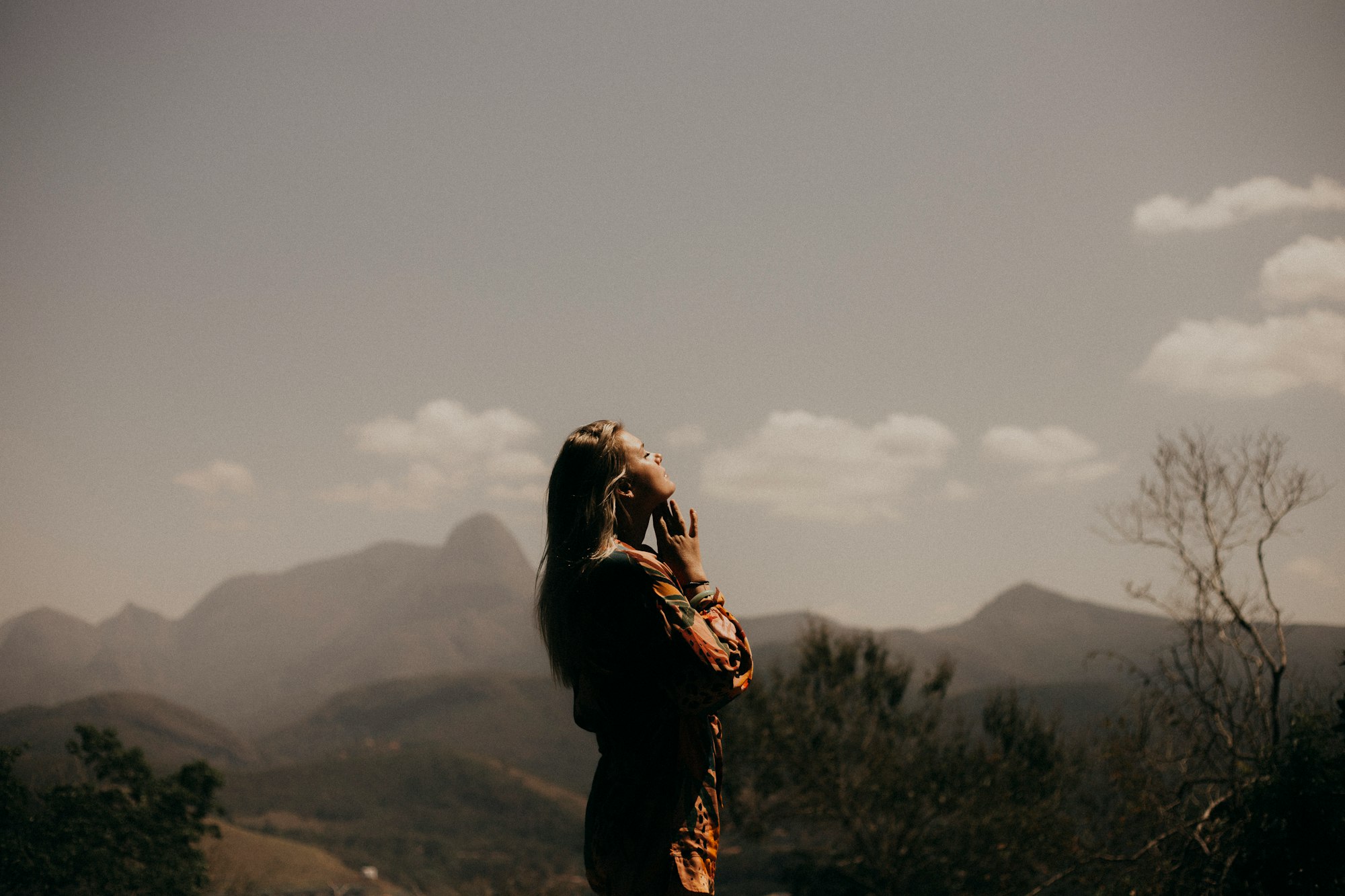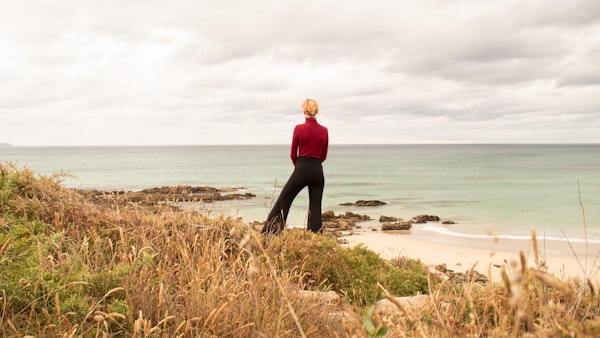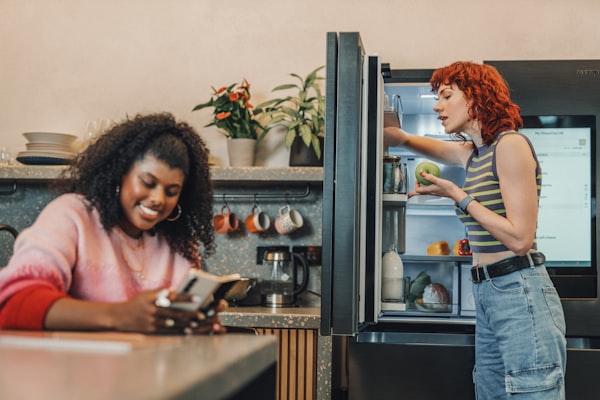Simple Wellbeing Practices to Become More Spiritual and Mentally Strong
Discover simple yet effective wellbeing practices that can help you cultivate spirituality and strengthen your mental resilience. Explore mindfulness, gratitude, and self-reflection techniques.

Spiritual health is a pillar of overall health, and while it’s often connected to religion, it doesn’t have to be. In fact, non-religious spirituality has even got its own acronym. ‘Spiritual But Not Religious (SBNR)’ is a term that describes those who feel connection with something greater than themselves, but don’t subscribe to a particular religious belief.
These people often have great intuition and are in touch with their inner selves. They’re free to connect with things beyond the bounds of one specific religion, but that also can present a problem - where do you go to find spiritual belonging?
What is spiritual health?
The concept of being spiritual outside of religion has been rising in recent years. It forms a core part of many indigenous cultures – for example, in Māori culture, spirituality is one of four pillars in the Te Whare Tapa Whā wellbeing framework. You might even use practices or aspects of a particular religion without identifying as overtly religious.
In general, spirituality can be a deeply personal thing, which can make it difficult to define. The International Consensus Conference on Spiritual Care in Health Care describes spirituality as “the way individuals seek ultimate meaning, purpose, connection, value, or transcendence.” You can probably see why it’s often associated with religion, but hopefully also why it doesn’t need to be.
Spiritual activities can help to discover the things that mean the most to you, while also benefitting from being involved with them. Things like work, family, relationships and hobbies can all play a role in building spiritual health - it’s about the things that you feel most connected to.
The raft of benefits of spiritual health are clear. A Harvard study found spiritual participation was linked to greater longevity, less depression and suicide, and less substance abuse. McKinsey analysis describes mental, social and spiritual health as being just as important as physical health in our lives, as well as being deeply interconnected.
By recognising and satisfying your own individual spirituality, you can do a lot for your overall health.
Ways to find non-religious spiritual connection
1. Meditation
Meditation has been used in spiritual practices for generations. It can be used for a range of different things, and often involves some form of self discovery or reflection. It isn’t too difficult, and you can try out free meditation guides on Clearhead to get you started.
As well as having significant physical health benefits, meditation is deeply rooted in spirituality. It can promote a balanced sense of yourself, bring inner peace, reduce stress and create a strong sense of belonging.
2. Time in nature
Nature has a profound ability to heal and speak to the soul. Getting outside and breathing the fresh air leaves you feeling refreshed and revitalised, particularly if you tend to spend a lot of time indoors.
Whether it’s a beach, park, bush, mountain, forest or any other outdoor setting, just being in nature and being present can have a remarkable calming, centering effect.
3. Mood tracking
Mood tracking is a great way to better understand how your thoughts can affect your emotions and vice versa. When you track your mood, it helps to grow self-awareness around your mental state and improve your ability to self regulate how you are viewing the world.
It’s the first step towards self actualisation and developing mental resilience in the face of life’s ups and downs, and a key to achieving mastery over your mind.
Unlock insights on the patterns driving your moods every week with our free mood tracker tool.
3. Journalling
Journaling is a great way to stay present and aware of what’s going on in your life. Life comes at you fast, and things can come and go so quickly that you don’t really get the time to notice them, how they make you feel, or truly reflect.
Journalising is about taking the time to recognise and appreciate things. You can do it daily, every few days, weekly, or any other time that suits. It helps to create perspective by seeing things physically written down, and makes you think a little bit deeper than if you just carried on with your life without stopping to acknowledge things that happen - good or bad.
4. Practising gratitude
Similar to journaling, practising gratitude helps to boost your appreciation for the things in your life that you really connect to. Practising gratitude is about taking time out to consciously be grateful for things - whether it’s something that happened to you that day, people, circumstances or anything else in your life.
It can also help to promote self awareness by asking yourself why you’re grateful for certain things. This can lead to a greater understanding of the things you connect with and why they mean so much to you.
Get into the habit by trying out our free gratitude tool on Clearhead to get you started.
5. Exercise
Exercise might predominantly be a physical activity, but it also has spiritual and mental health benefits. You can use the time you spend exercising to reflect and think, release emotion and challenge yourself.
If you’re an active, physical person who enjoys getting a sweat up, the spiritual benefits of exercise are very much part of the enjoyment you get from it.
6. Yoga
Yoga is clearly a form of exercise, but it gets its own section because of the nature of what it is. Yoga tends to be a more mindful type of exercise compared to going for a run or working out - it doesn’t have to be, but that’s typically how most people experience it.
It’s mindful in the way it promotes a conscious connection with your mind and body. The word yoga actually comes from the Sanskrit word for “to connect”. It helps to promote a sense of purpose, clarity, self-awareness and contentment.
7. Volunteer
Giving time to a movement or charity that means something to you can be really powerful. While volunteering is about helping others, it’s also deeply rewarding, particularly when it’s for a cause that means something to you.
Volunteering is easy to do, and there are a large range of initiatives that welcome people willing to give their time. It’s a really good way of not only being involved in something that’s meaningful to you, but also contributing to its benefit.
Engaging with your spiritual side in these kinds of ways really helps to build spiritual and holistic health. The Clearhead app is a great place to start, with tools and tips for meditation, journaling, practicing gratitude and a range of other spiritual health techniques.
To get started, or to find out more, book a free demo today.





